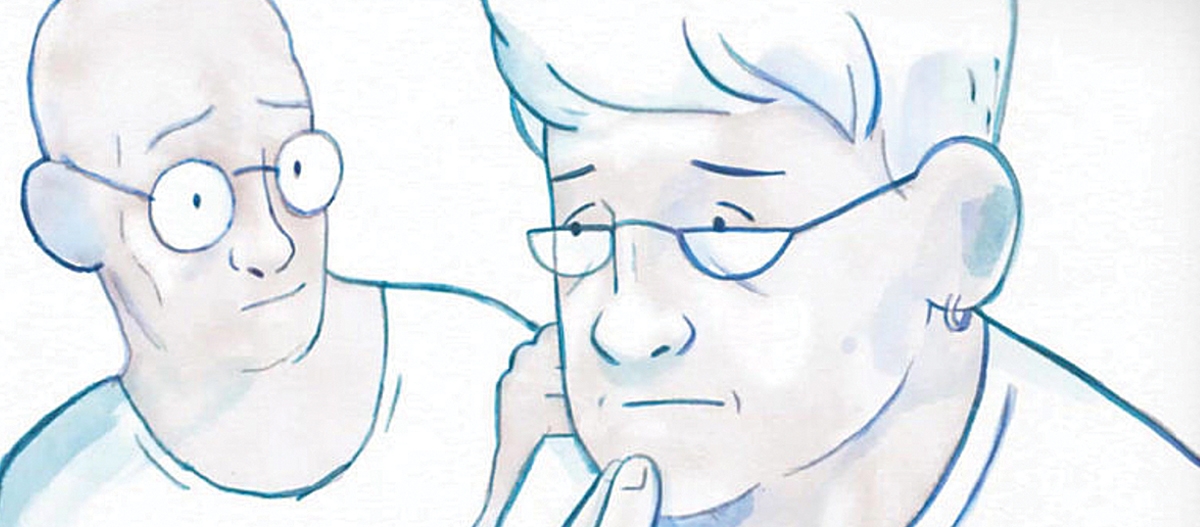It’s a conversation no family wants to have—talking to a loved one about memory loss or cognitive decline.
Close family members are typically the first to notice memory issues or cognitive problems, but they are often hesitant to say something—even when they know something is wrong. A new survey released today by the Alzheimer’s Association reveals that nearly 9 in 10 Americans experiencing memory loss, thinking problems, or other symptoms of cognitive decline would want others to tell them and share their concerns. However, nearly three out of four Americans say that talking to a close family member about memory loss, thinking problems, or other signs of cognitive problems would be challenging for them.
The Alzheimer’s Association aims to bridge the current communication gap, not only by encouraging families to talk about cognitive concerns sooner, but also by launching a new national campaign in partnership with the Ad Council, to help facilitate these difficult conversations before a crisis occurs. The “Our Stories” campaign is the first-ever collaboration between the two groups and features real stories of people who noticed cognitive changes in a family member and took the first, difficult step to initiate a conversation.
“Discussing Alzheimer’s is challenging for families, and this campaign tackles the issue directly,” said Lynn Mullowney Cabrera, executive director of the Montana Chapter of the Alzheimer’s Association. “Initiating conversations sooner can enable early diagnosis, which offers many important benefits, including allowing more time for critical care planning, better disease management, and providing diagnosed individuals a voice in their future care. The ad campaign is designed to encourage and empower people to have productive conversations before a crisis occurs.”
Every 65 seconds someone in the United States develops Alzheimer’s disease. It is America’s sixth-leading cause of death, affecting more than 5 million Americans and 16 million caregivers. Despite Alzheimer’s growing impact, many families struggle with discussing the issue.
Ed Ortiz, 52, from St. Helena, Calif., is featured in the “Our Stories” campaign. He recalls the moment he knew it was time to have a conversation with his mother.
“My mom stopped at a stop sign and didn’t know what to do next,” he said. “It was a scary moment for both of us, but I knew she needed help.”
The campaign demonstrates the importance of family members trusting their instincts and proactively raising concerns. The message, “When something feels different, it could be Alzheimer’s—now is the time to talk,” will be important for shifting people from being passive when they observe potential symptoms to taking an important step and having a conversation.
“By highlighting heartfelt, relatable stories of people who have been diagnosed with Alzheimer’s, this new critical campaign will help ease the challenges associated with starting this difficult conversation,” said Lisa Sherman, President & Chief Executive Officer of the Ad Council. “We hope it will encourage audiences to notice the signs early, trust their gut, and have a talk. Having this conversation early can make a big difference in the lives of those who have been diagnosed and their families.”
Video stories of caregivers who saw the signs and started a conversation are designed to help illustrate how other families can do the same. Additionally, the campaign’s website (ourstories.alz.org) offers families tools and resources, including customizable conversations starters, a list of early signs and symptoms of Alzheimer’s, benefits of early diagnosis, a downloadable discussion guide, and other resources.
For resources to help start the conversation about cognitive concerns, visit “Our Stories.” For tips on Approaching Memory Loss Concerns, visit alz.org. MSN
In addition, the Alzheimer’s Association helps families and friends navigate challenges and considerations at each stage of the disease, through face-to-face conversations with experts in local communities, our free 24/7 Helpline (800.272.3900) and comprehensive support and resources on.








